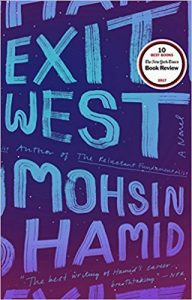HOW TO BE A GOOD BOOK CLUB MEMBER
Although I’ve been an avid reader most of my life, I have never joined a book club. Until now.
In years past, I was afraid I wouldn’t be able to keep up with the reading pace of a club or the selections wouldn’t appeal to me and I would miss out on reading books I really wanted to read. But then I uprooted my life, moved to a new state, and decided to be open to whatever reasonable opportunities came my way. One of the first opportunities I saw was a book club in my new community, so I plunged right in.
Now here I am, trying to understand the workings of my particular book club and how to be a good contributor. The first thing I realized was that a book club is not a critique group. I can’t approach the novels in the same way I’ve approached manuscripts for other writers in groups and writing classes. The members of my book club aren’t concerned with making the book better. Although they can certainly be critical of elements in a book, they’re more interested in sharing their reactions and understandings of a book and comparing those with the reactions and understandings of other readers.
At our meeting last month, we discussed Exit West by Mohsin Hamid, which I  think is an excellent choice for book clubs because it provoked a variety of reactions. The members who liked it talked about the beautiful writing. One said he thought it read like a prose poem. The members who didn’t like it said they had no empathy for the main characters, Saeed and Nadia. They really didn’t care what happened to them. Another member said readers didn’t need to care about Saeed and Nadia because they were not real characters in the usual sense. To her they were vehicles to move along the story, in which she saw a great deal of symbolism.
think is an excellent choice for book clubs because it provoked a variety of reactions. The members who liked it talked about the beautiful writing. One said he thought it read like a prose poem. The members who didn’t like it said they had no empathy for the main characters, Saeed and Nadia. They really didn’t care what happened to them. Another member said readers didn’t need to care about Saeed and Nadia because they were not real characters in the usual sense. To her they were vehicles to move along the story, in which she saw a great deal of symbolism.
The subject matter of the novel—migration—also spurred a passionate discussion, so much so that the group leader had to bring the focus back to Exit West. I agree we needed to keep our conversation relevant to the novel, but I liked that the readers recognized the issues raised in the writing and wanted to share their thoughts about them. I hope that book clubs who choose to discuss my novel Surface and Shadow will spend time talking about the need for personal identity and independence, lack of respect within families, and other challenges my characters face. I think novels should help readers see the world in a different way or see in a different light a truth they have always known.
One of the things I like best about my book club is their ability to see the larger meaning in a novel and to describe the elements that contribute to it and those that don’t. That’s a gold mine for me as a writer. And for me as a reader. It helps direct my thinking for the next book I read. One of the purposes of a book club, I think, is to make the members better readers.
So I’m back to my original question of what can I do to be a good member of my book club and help us become better readers. The reporter in me (from my past life as a journalist) says an effective way to encourage ideas is to ask the right questions. That’s why authors often include discussion questions at the end of a novel, but I think it may be good to go beyond those—to ask what the book means to this particular group of readers. Everyone deserves to have his or her personal reaction to a story.
And I’d like to know other approaches. How do you contribute to your book club? How can I use my experience as a writer to make me a better book club member? I’d appreciate hearing any ideas you have.
Sally Whitney
Sally Whitney is the author of When Enemies Offend Thee and Surface and Shadow, available now from Pen-L Publishing, Amazon.com, and Barnesandnoble.com. When Enemies Offend Thee follows a sexual-assault victim who vows to get even on her own when her lack of evidence prevents police from charging the man who attacked her. Surface and Shadow is the story of a woman who risks her marriage and her husband’s career to find out what really happened in a wealthy man’s suspicious death.
Sally’s short stories have appeared in magazines and anthologies, including Best Short Stories from The Saturday Evening Post Great American Fiction Contest 2017, Main Street Rag, Kansas City Voices, Uncertain Promise, Voices from the Porch, New Lines from the Old Line State: An Anthology of Maryland Writers and Grow Old Along With Me—The Best Is Yet to Be, among others. The audio version of Grow Old Along With Me was a Grammy Award finalist in the Spoken Word or Nonmusical Album category. Sally’s stories have also been recognized as a finalist in The Ledge Fiction Competition and semi-finalists in the Syndicated Fiction Project and the Salem College National Literary Awards competition.
- Web |
- More Posts(67)